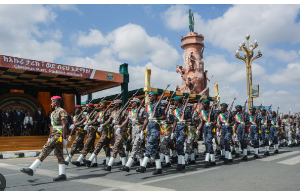Accra, May 12, GNA - The first West African Health Organisation (WAHO) workshop on Pharmacovigilance Systems in West Africa, aimed at strengthening medicine safety monitoring systems in the sub-region has ended in Accra. The four- day workshop was organised by the World Health Organisation (WHO) collaborating Centre for Advocacy and Training in Pharmacovigilance, in collaboration with the mother organisation (WHO) and Sweden-based Uppsala Monitoring Centre (UMC) for participants from all the 15 ECOWAS-member states .
The meeting sought to strengthen and harmonise existing policies and strategies employed in member states to monitor the safety and effectiveness of medicines and other pharmaceutical products. The summit will be followed by the first annual meeting of National Centres of participating countries in the WHO Programme for International Drug Monitoring in Accra from October 30-November 3. In November 3-November 6 the country will also host the 10th meeting of the International Society of Pharmacovigilance, which is expected to be attended by global leaders in drug safety.
Mr Rojo Mettle-Nunoo, Deputy Minister of Health, who addressed the closing ceremony, expressed concern about the vibrant fake and counterfeit drug industry in the country despite the existence of a national drug list. He said advertisement of uncertified medicine and dispensation of expired drugs to unsuspecting victims was also worrying.
The Deputy Minister called for greater vigilance in the marketing and sale of food supplements and tobacco products.
Mr Mettle-Nunoo asked WAHO to involve the Food and Drugs Boards in member countries and other stakeholders in their deliberations to strengthen pharmacovigilance.
He noted said although modern heath care involved the use of potent medicines it is extremely important that drugs are monitored to ensure their real-life safety.
Mr Mettle-Nunoo said: " To do this efficiently, it is also important that we (WAHO) share information with other governments whenever we pick up safety concerns against any medicine since these medicines may also be available in other countries.
"Having national pharmacovigilance system therefore permits continuous and active monitoring of medicines safety to provide data for national decision making and for the improvement of patient care and well-being." Dr Alex Dodoo, Director of WHO Collaborating Centre at the University of Ghana Medical School said patients in West Africa have the right to expect safe and highly efficacious medicines.
"The trade in counterfeit and substandard products is detrimental not just to our health but also our economies. The need for our regulatory bodies to be strengthened and stronger is clear and evident. Can we rise to the challenge?" he asked.
He said the centre (the first in the sub-region) has shown that it can carry out world class research on vaccine safety and also on antimalarials and antiretrovirals in Ghana.
Dr Ibnou Deme, WAHO representative said pharmacovigilance should be of great interest in Africa to check the activities of the big industries producing counterfeit products.
Mr Sten Olson of UMC expressed the need for patients to have the right to safe medication and the commitment of politicians and other stakeholders to make that possible.
Dr Shanthi-Pal of WHO said medicine safety monitoring in West Africa had complemented 40 years of WHO activities in pharmacovigilance.
Health News of Wednesday, 12 May 2010
Source: GNA




![A file photo of the private jet [Image Credit: Yaw Pare via Facebook] A file photo of the private jet [Image Credit: Yaw Pare via Facebook]](https://cdn.ghanaweb.com/imagelib/pics/153/15348139.295.jpg)







